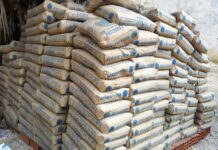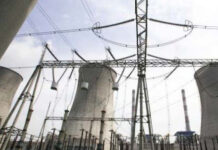ISLAMABAD: Following import restrictions, currency devaluation, and political uncertainty, the output of Pakistan’s Large Scale Manufacturing Industries (LSMI) decreased by 11.59% in February 2023 compared to February 2022, according to data released by the Pakistan Bureau of Statistics (PBS) on Monday.
Due to costlier inputs caused by rupee devaluation, high financing costs, and a global slowdown, various industries have either shut down their plants or limited their operational hours to the lowest during the past few months.
According to provisional Quantum Index numbers (QIM) of the LSMI, the output of big industries declined by 5.56% during the first eight months (July-February) of the current fiscal year (FY23) compared with the same period last year.
What is the Quantum Index for Large Scale Manufacturing?
Quantum Index of Manufacturing (QIM) measures the changes in production of Large Scale Manufacturing Industries (LSMI) overtime, on a monthly as well as cumulative basis. The weights presently used for the QIM were derived from the Census of Manufacturing Industries (CMI) 2005-2006.
What has happened to the LSMI in the Current Fiscal Year?
It should be noted that the decrease in LSMI output began in July 2022, the first month of this financial year. At that time it was a 1.4% decline after continuously growing for the previous 21 months. Earlier, LSM growth remained negative from September 2019 to October 2020, mostly hampered by Covid-19.
Similarly, in August 2022, LSM was reduced by 0.02%, September by 2.7%, October by 7.63%, November by 6.15%, December by 3.51%, January 2023 by 7.9% and now in February 2023, it has shrunk by 11.59%.
As per the data, the LSMI Quantum Index Number (QIM) was estimated for July-February 2022-23 at 116.64, while it was estimated for February 2023 at 126.13.
The LSM data released by the PBS with the base year 2015-16 showed that the main contributors towards the overall negative growth of 5.56% are food (-0.35), tobacco (-0.50), textile (-2.82) garments (3.21), petroleum products (-0.64), cement (-0.77), pharmaceuticals (-1.25), and automobiles (-1.68).
For the persistent weakness in LSM, domestic factors, and the global recession-like situation are to be blamed. Domestically, high energy costs, rupee devaluation, and the government’s monetary and fiscal policy tightening and limiting imports due to a dearth of dollars were major factors for negative growth, which will also affect GDP growth in FY23.
The production in July-February 2022-23, as compared to July-February 2021-22, has increased in wearing apparel, furniture, and other manufacturing (football) while it decreased in food, tobacco, textile, coke & petroleum products, pharmaceuticals, chemicals, non-metallic mineral products, machinery and equipment, automobiles, and other transport equipment.
The sectors showing growth during July-February include wearing apparel (35.53%), leather products (3.85), furniture (58.45%), and other manufacturing (football) (35.81%).
The sectors showing decline during the July-February include food (1.95%), beverages (6.14%), tobacco (20.42%), textile (14.03%), wood products (68.65%), paper and board (3.37%), coke and petroleum products (9.43%), chemicals (4.84%), chemical products (0.53% increase), fertilizers (7.77%) and pharmaceuticals (22.41%).
The import restrictions not only affected the major industries like textile but also had a significant impact on the construction industry in Pakistan. Cement production, which is a major component of the construction industry, witnessed a negative growth rate of 11.82% in the first eight months of the fiscal year 2022-23. The production of cement during this period stood at 28.163 million tons, compared to 31.938 million tons in the same period of the previous fiscal year.
Moreover, the petroleum industry also felt the brunt of the import restrictions. The production of petroleum products saw a decline of 9.43% during July-February of FY23. The Quantum Index numbers (QIM) of the Large Scale Manufacturing Industries revealed that high-speed diesel experienced a negative growth rate of 10.88%, as its output dropped to 3.213 billion liters in the first eight months of the current fiscal year compared to 3.605 billion liters in the same period of the previous fiscal year.
Similarly, the production of furnace oil also witnessed a negative growth rate of 7.21% during the period of July-February of FY23, as it remained at 1.558 billion liters compared to 1.679 billion liters in July-February of FY22. However, jet fuel oil witnessed a growth rate of 15.48% during the same period, and its production remained at 591.745 million liters compared to 512.442 million liters in the same period of the previous fiscal year.
Kerosene oil production, on the other hand, was severely affected by the import restrictions, and its output witnessed a negative growth rate of 29.95% in July-February of FY23. The production of kerosene oil stood at 64.719 million liters compared to 92.395 million liters in the same period of the previous fiscal year.
Overall, the import restrictions had a significant impact on various industries in Pakistan, including the textile, construction, and petroleum industries. The decline in the production of these industries has not only affected the economy of the country but also resulted in the loss of jobs for many workers.
























